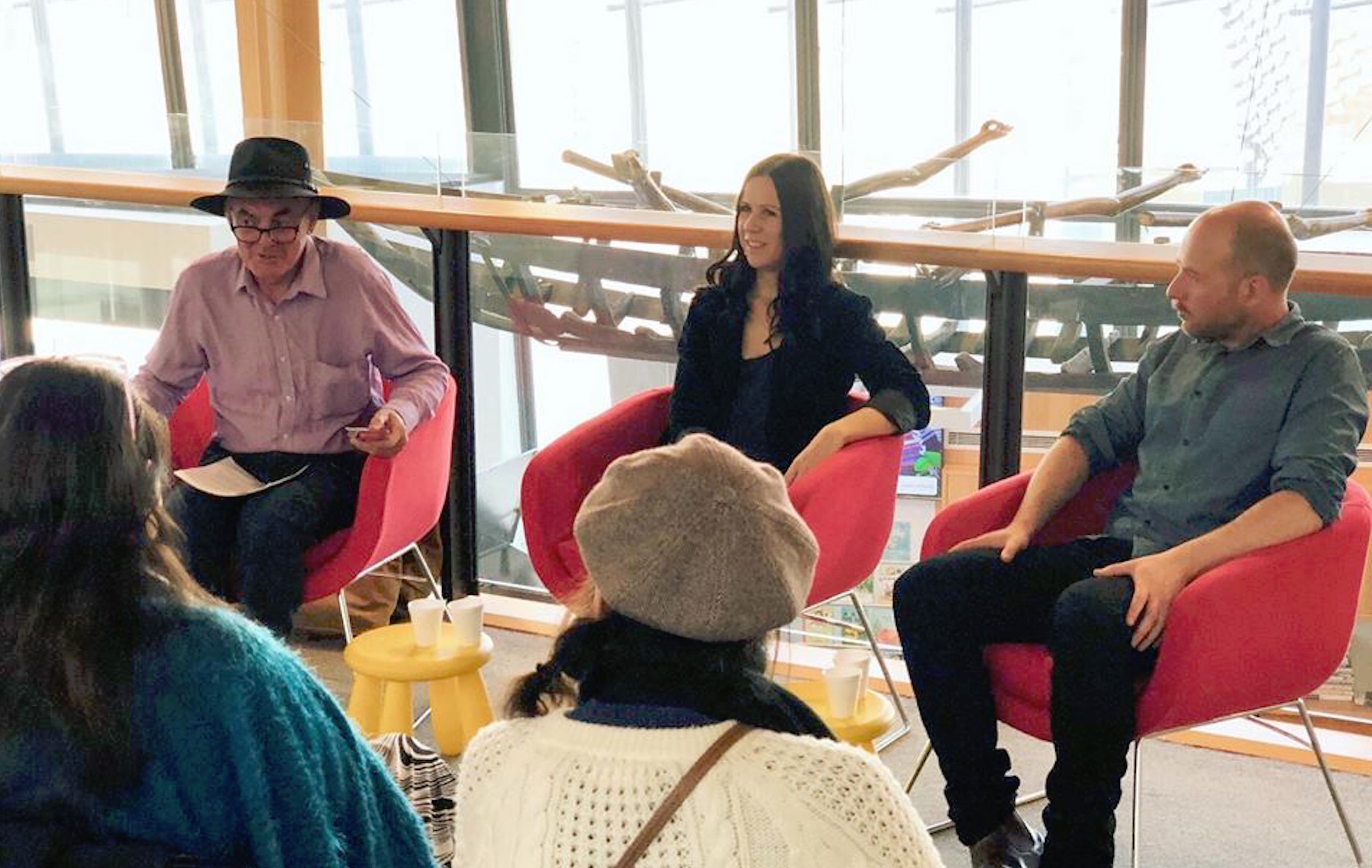Canberra Writers Festival
The third Canberra Writers Festival has just wrapped, and this year I found more to love on the program than in previous years. In fact I wish I’d been able to split myself in two for several timeslots. If you’re after rundowns on lots of the sessions, head over to the Whispering Gums blog, but I thought I’d just highlight a few of my favourite events here.
First up though, I was on a Canberra Writers Festival preview event with journalist Sam Vincent, moderated by the Conservation Council’s Larry O’Loughlin. We spoke about animals in literature, and the power of words to change the world. Interestingly, this theme was echoed throughout the festival in many different ways. But in this session I naturally spoke about the animal rights issues involving elephants in Asia, which relates to my next book. I could talk about the complexity of these issues for days, but in truth I don’t recall the conversation in enough detail to recount it here (events are always a bit of a blur afterwards). I do remember that it was a thoroughly enjoyable conversation with some thoughtful and intelligent questions posed by the audience. Can’t ask for more than that.
Read More »Canberra Writers Festival

But on to other sessions. The Prime Minister’s Literary Award Recipients session was moderated by the wonderful Sue Whiting, a children’s author and editor (formerly my editor at Walker Books) and one of the judges for the PMLAs. Her panel consisted of a diverse range of writers — children’s author Wendy Orr, historian Peter Cochrane and poet Anthony Lawrence — and yet she managed to make this a cohesive and interesting session. Ryan O’Neill was also billed as part of the panel, and I was looking forward to hearing him speak, but sadly he was unable to attend due to a death in the family.
It’s impossible to cover everything in this discussion so I’m going to touch on a couple of points that most interested me. The PMLAs are the richest Australian literary prize, with each author taking away $80,000 tax-free. The financial benefits for writers — most of whom are unable to live off royalties — are obvious, but Wendy recounted how the prize meant so much more to her.
Despite spending her whole adult life in Australia and writing all her books here, she has always been referred to as a Canadian author. She has repeatedly been told that she cannot say that Nim’s Island was the first Australian book to be made into a Hollywood film, because she’s ‘not Australian’. Naturally she found this deeply hurtful, but the PMLAs changed all that. ‘I can say I’m an Australian author now, and my books are Australian books.’ Bravo!


